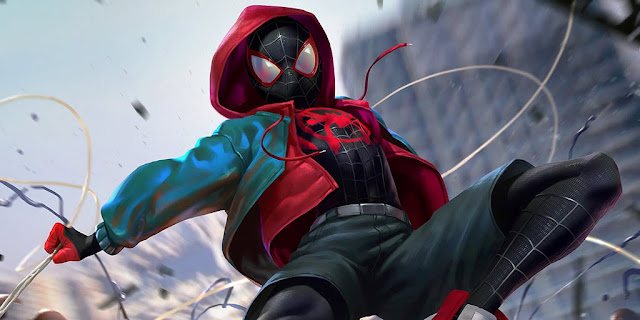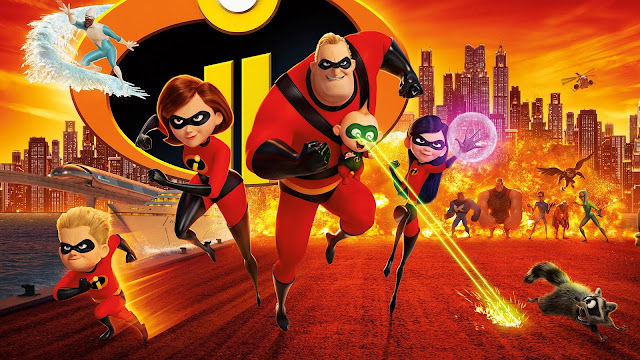100 Days of Marvel: Road to Infinity War - Day 8: Heroic Analysis of Bruce Banner from "The Incredible Hulk"
Let's discuss the big green elephant in the room - it is not Mark Ruffalo playing the Hulk in this thing. Ruffalo plays Bruce Banner in the later films, and I think he does a much better job. That being said, Edward Norton did a decent job in this film as both the Hulk and as Bruce. That being said, I do not fully believe Norton's Banner because he is a strong, fit, good looking man. I always imagine the Jekyll and Hyde dynamic on a character that is more nerdy. So while I think his Banner is okay, Ruffalo fits this a little better for me. It is also less believable that Norton's portrayal does not want to be the Hulk. Okay, so maybe I am not a fan of Norton, at least when I have to compare him to Ruffalo. Okay, you caught me. I hate him. Does he even math? Norton doesn't even wear glasses?!
Then again, Lou Ferrigno was a Hulk, and look at how buff he was. It is only fitting that he voices the Hulk in this film as well, and according to IMDB he is a security guard, though I missed his cameo here during this re-watch. I am not even sure if Ferrigno was just Hilk, or if he was also Banner.
His first transformation in the film is incredibly well done. Amazing tension. Incredibly well filmed. I even like the look of this Hulk here. It is a neat classic horror movie type deal - the ones where you don't really see the monster until the end of the film. We get those green eyes against a dark backdrop in the bottling plant, and we know some **it is about to go down. No one is safe. Even Stan Lee dies in this thing, and he is allegedly some God, Astral Being or something in the MCU.
SEPARATION / DEPARTURE
"The Incredible Hulk" starts off where Edward Norton's Bruce Banner is already the Hulk. We get some exposition that explains how this went down, and that is really all we need. We know that something of this nature exists because we see it with Captain America: The First Avenger. It is easy to buy into the notion that Banner had access to this drug that made the Super Soldier, or the movie tells us this and I missed it, either way the dots can be connected. That being said, this could mean that Bruce Banner's constant struggle to fight his literal inner demons represents a constant Refusal of the Call for the character.
As a hero, Banner's primary goal is to protect others by safeguarding his blood and keeping the secret of his Gamma Radiation from getting out. In this way, he hopes that his "abilities" cannot be used to harm other people. Most of his journey revolves around this, protecting the people close to him, who he loves, and fighting off his own self-inflicted Mr. Hyde.
In regards to this narrative, his true Refusal comes when the government discovers his hiding location in Rocinha, Rio De Janeiro, a location in Brazil. He runs when they confront him, and those refusing his Call to Adventure. He has been running, both during the film and before the film begins. He finally Accepts the Call when he has nothing left to lose and the government organization begins to crack down on him and those around him he loves.
Alternatively, we can see his Call to Adventure being represented by his cut finger leaving blood in the bottle. His first Refusal can be when he tries to stop it from getting out, but it does anyway, and so he is forced run and forced to Cross the First Threshold.
Banners Supernatural Aid is clear as day. He has the gamma radiation that turns him into the Hulk, and as the Hulk he has supernatural powers beyond imagination. Is it just me, or is the Hulk a lot weaker in this film. Bullets were slowing him down more than I think they have in some of the later movies, almost to the point where I think enough of them could have hurt him. Also, the character was a lot more vulnerable as Bruce Banner in this, whereas the later films where Hulk appears I think the Hulk comes out when Banner is in danger. In the beginning when Banner cuts himself at the plant, and bleeds, it seems as if the Hulk would come out and shut that down, but that did not happen.
The marvel superhero films may not do a great job with their villains, but they also don't do so hot on the Mentor front. In this film, who is Bruce Banner's mentor? You can make a case that the Hulk's mentor is Bruce Banner (if you are ridiculous), but I don't think that the Hulk is the actual hero (clearly it is Banner). I don't actually have an answer for this, and I guess Banner does not have a clear mentor until he appears in the films that follow. Samuel Starnes may be a mentor. He does help Banner learn more about his Supernatural Aid.
On the contrary to my prior point, Banner has so many Belly of the Whale moments it is difficult to pin down. The main joke here is obvious, so I will simply state: He enters the Belly of the Whale every time he enters the belly of the Hulk. A more static "danger zone" can be considered once he Crosses the Threshold and is on the run for the government.
INITIATION
As Villains Ross (William Hurt...lol at Hurt in a Hulk movie) and Bonsky (Tim Roth) are not great, but they do exist. The real villain that Banner faces is the Hulk, which even though serves as his Supernatural Aid, still presents a problem if it got into the wrong hands. So Banner spends most of the movie trying to hide it and keep it away from the wrong hands.
In regards to Allies, Banner does not have many. He has the man who he visits before he meets up with Betty Ross (Liv Tyler), and Betty Ross. Mr. Blue is more so a Mentor, or even to some degree an additional Villain. In the end, however, a case can be made for General Ross, though it would certainly be a stretch to make that claim. Just because he helps him in the end wouldn't make him a full on ally, and if anything he only does to stop Bonsky Hulk.
On the subject of Betty Ross, she plays many roles. She is his Woman as Temptress in the beginning of the film. He really shouldn't go to her because he puts her in a great deal of danger, and if he truly cared for her he would have stayed away. Maybe that is just my thinking and I am alone there, or maybe I am just too logical. But the way I see it, he didn't love her enough to not bring his curse upon her - and it is he himself who feels that the Hulk is a curse. Betty Ross represents his Meeting with the Goddess, too. In her he has the Boon of Love, and they form a relationship that is so magical that she is able to calm him down from Hulk stage.
Wrapping up the Initiation Phase, I am not sure I know enough about Bruce Banner's father, or other parental unit, to say that he has any real Atonement. Maybe this happens in some deleted scenes (I heard the theatrical release is missing a lot of footage). This was one of those I-have-to-watch-while-also-doing-other-work type deals, so maybe I missed something in the early part of the film that explains this. The guy who he stays with in the beginning of the film could be set up for later atonement, but I would have to go check, and I ain't got the time to be re-watching immediately after a re-watch. I am only human and it is only Tuesday.
RETURN
Unfortunately, the Hulk story isn't really concluded with this film. Ignoring the obvious (that the Hulk character returns in later Marvel Cinematic Universe Films) he does not really have a strong Apotheosis moment either. The ending of this film would have us believe that Banner is a Master of Two Worlds, however this is undone when the Hulk cannot control his transformations in the future films. We get virtual no Return, because the film cuts from the climactic battle between Bonsky's Hulk and Banners, to Banner meditating in a room somewhere, seemingly far, away from New York.
All of the Magical Flight happens with the magic of editing it away, because we certainly don't get it on screen, although General Ross arguably allowed him to get away. That is as magical as his flight gets.
MY THOUGHTS / FINAL OPINION
As a power, I like the Hulk, and even though Banner has many of the heroic plot beats, he never feels heroic in this. This may because he is two characters in one. One of the best parts of the film is when Banner takes the leap from the aircraft. It is meaningful to Banner as a hero, not because he goes Hulk, but because he chooses to do so as Banner, risking everything because he does not know what the result will be. This is a real moment of depth, and desperation, for the character.
Every other character is poorly developed. I could say one sentence and you would know exactly who I am talking about: The military general who wants to capture Banner for research and weapon science. The bounty hunter who is mad with power because he saw green, literally. The woman. None of these characters exist outside of this description, and none of them have meaningful change. What they want is just as flat as they are: control, power, and love, respectfully.
Not a bad film by any means, but also not Marvel's best. It was cool to see Tony Stark show up in this thing in the end. Talk about a multi-facited character with the levels like an onion.








Comments
Post a Comment